This year at Burning Man, I helped build another giant art piece with the same team as Rainbow Bridge. This time it was a giant upside down ice cream cone named Cone Down
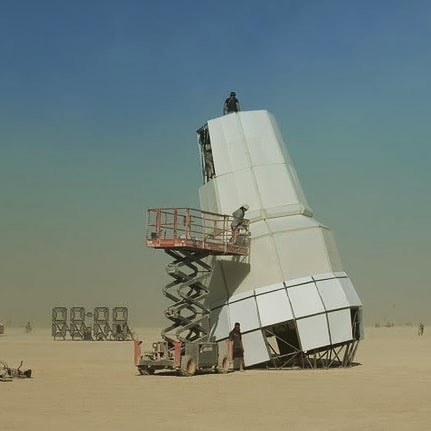
Attribution: https://www.instagram.com/p/B2unzxrhC2n/
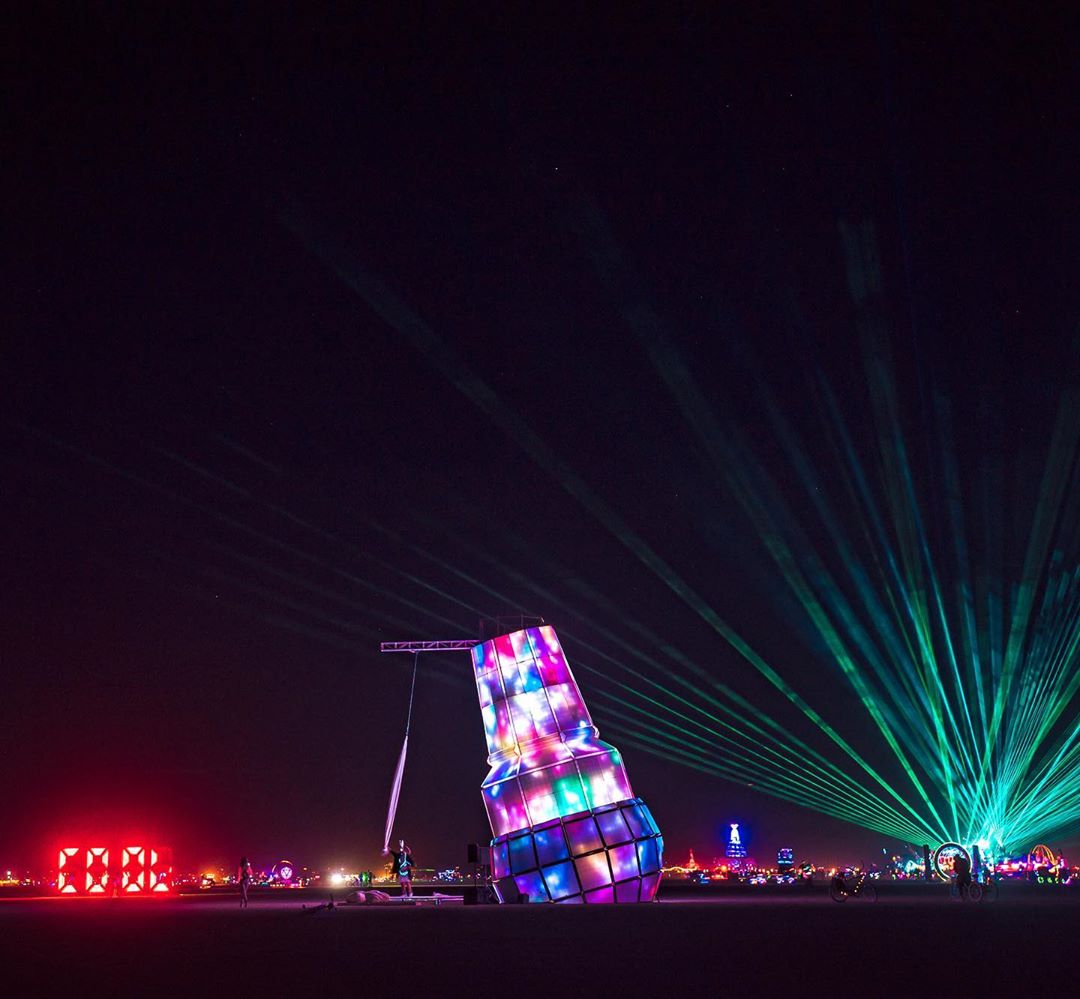
Attribution: https://www.instagram.com/p/B2aAhEwHN7u/
Features included:
- Rope ladder to the top
- DJ booth at top
- Truss for aerialist performances
- Dancefloor with lighting and theoretically pressure sensitive tiles (prototype worked, didn't have time for full implementation)

Attribution: https://www.instagram.com/p/B2l5Vg-gxpz/
Construction
Cone Down was built with a steel frame, layered like a cake
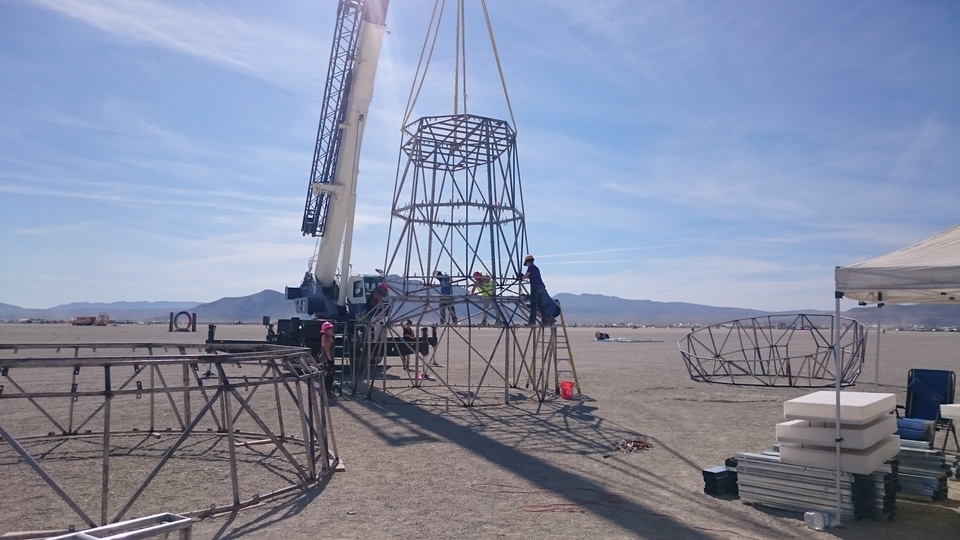
Each layer had either 8 or 16 panels where a lightbox would be mounted via bolts through tabs
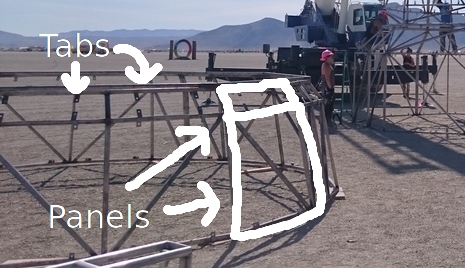
For the dancefloor, we laid the lightboxes on the ground and placed the frame on top of it. The dancefloor had a layer of clear polycarbonate on top of the frame
Each lightbox is an aluminum sheet with LEDs directly mounted via mounting tape and corrugated plastic for its sides and/or top (depends on panel location)
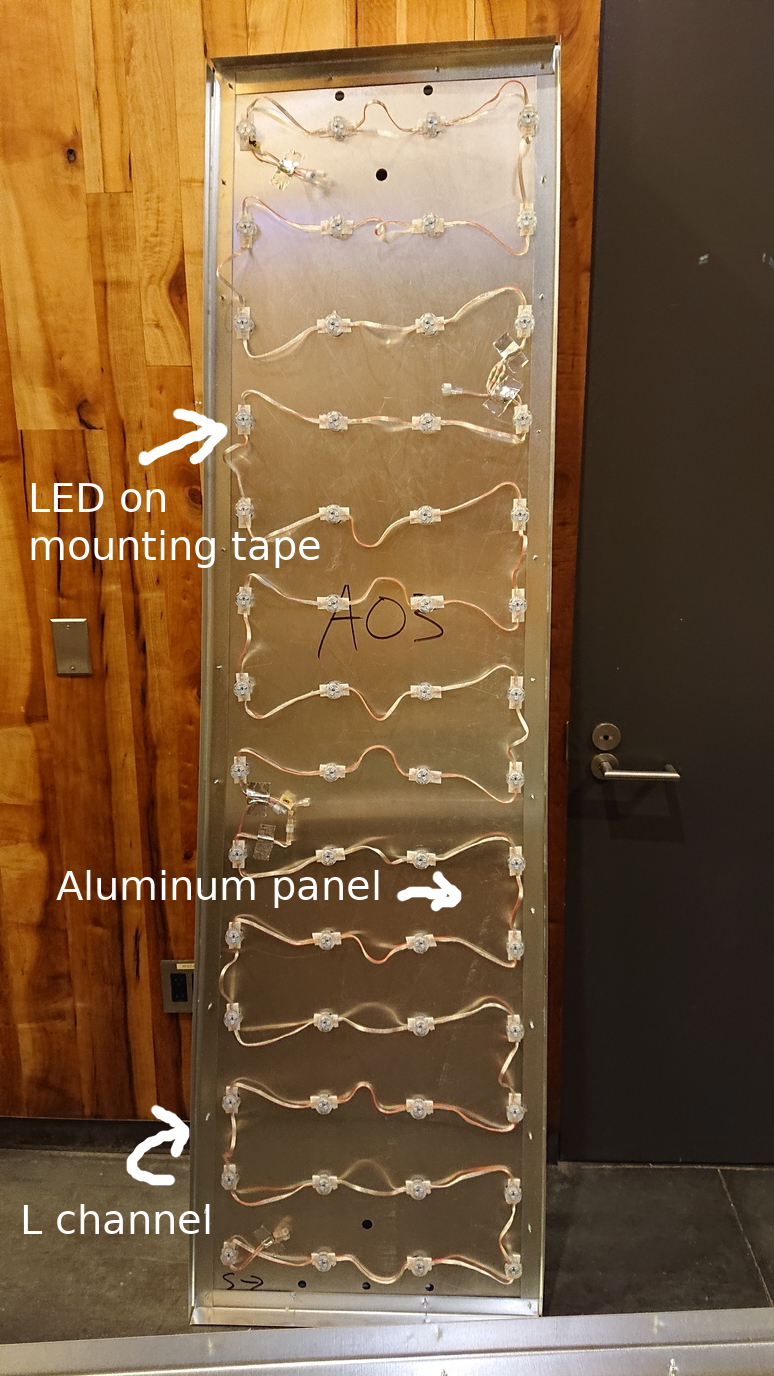

These panels were wired with IP68 connectors then ran along the frame where they'd be met by power supplies for power injection and PixLite long range receivers at the base
These were connected to a central spider box (with some power splitters in between), PixLite, and computer. Our power source was a 14kW generator
We had 5939 LEDs total, 5498 on the cone (3544 in the cone, 1154 in the scoop) and 441 in the dancefloor. Here's our breakdown by panel variant:
# Cone
16*56 + 16*50 + 8*27 + 8*72 + 16*66
# Scoop
# Lots of distinct variants due to slanted base
16*4 + 16*9 + 2*39 + 8*49 + 2*47 + 2*39 + 2*35 + 2*18 + 2*36 + 2*30 + 2*24 + 2*9
# Dancefloor
9*49
My role in this project was being 1 of the 3 EE (electrical engineering) co-leads. My tasks varied from panel fabrication (most time consuming) to layout/length calculations to interactive dancefloor prototyping.
Word of warning
We ran into a bunch of electrical issues due to numerous reasons:
- LED/cable manufacturer used inconsistent polarities (i.e. in 2 pin power injection, left was power for cables whereas LEDs used right for power)
- IP68 connector used soft plastic, causing easy improper connection
- Didn't catch early due to lack of time for integration testing
In the future, I'll definitely be proactive in testing everything early, often, and with plenty of delegation for diversity in testing